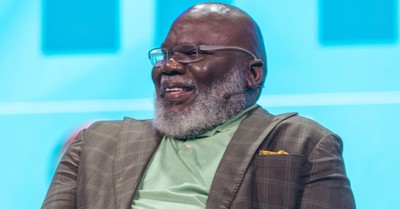No Perfect People Allowed
- Dr. James Emery White Mecklenburg Community Church
- Published Apr 21, 2011

A few weeks ago I was in England speaking at a conference for church leaders throughout the U.K. with a new friend, John Burke, who wrote a book titled No Perfect People Allowed: Creating a Come as You Are Culture in the Church.
It’s a good title for a very important idea.
John is the pastor of Gateway Church in Austin, Texas. Yep, the city that has as its motto, “Keep Austin Weird.” John’s thesis is that the church is facing its greatest challenge – and its greatest opportunity – as a result of our newly post-Christian world. “God is drawing thousands of spiritually curious ‘imperfect people’ to become his church,” John writes, “but how are we doing at welcoming them?”
I often interact with church leaders who talk a lot about “reaching the unchurched,” but within five minutes, it’s pretty clear to me that it’s mostly theory, with very little practice. Meaning, I’m not sure they’ve had a real conversation with a non-Christian in months. It didn’t take me long to know that John was in the trenches with me.
The same with churches. Many talk about reaching out, but you sense they would freak out if a tattooed, pierced, jeans-wearing person came in and took a seat. Translation: if a typical unchurched American walked in.
The major barriers John suggests we explore have to do with trust, truth, tolerance, brokenness, and aloneness. He’s right about those areas, and he’s also right about the questions of those who are interested in exploring faith:
*Can I come as I am?
*Can I come with my questions?
*Can I come with my fears?
*Can I come with my disagreements?
*Can I come with my doubts?
The answer, of course, is yes.
Or at least it should be.
Because no one is perfect, therefore imperfect people should not only be allowed, but made to feel right at home. The message of the Christian faith is that grace toward our imperfection has been made radically available to all through Christ. We often forget the purpose of grace. A band-aid is designed to be applied to a cut. A contact lens is designed to be applied to poor vision. Grace is designed to be applied to imperfection (sin).
So where’s the breakdown? It’s simple: nobody’s perfect, but somehow, at church, we feel like we have to act like we are. That’s a problem. You can’t have a “no perfect people allowed” church when everyone inside the church thinks they have to be.
Solution?
One of the core values at Meck is spiritual authenticity. All that means is that we want to be spiritually real. First, real about our sin. As I often tell our folks, “A sinner has to lead this church, so I might as well be an honest one, or else I just add deceit to my list.” So we get rid of Sunday smiles and plastic halos, spiritual pride and pretending to “have it all together.”
Someone will say, “But it isn’t just being real – shouldn’t there be life-change?”
Of course.
Authenticity doesn't just mean being transparent. It also means growing. It's not real if you are the same today as you were two years ago, or three years ago. I'm not saying we don't have the same struggles, but there should be progress, growth, development, maturation. To be an authentic Christ follower means to become increasingly like Jesus.
But that only happens when we can stop acting like we’re perfect, own where we are sick, and get on the path to getting better.
Which is why John and the Gateway folks, as well as other churches like theirs, add a line to “No perfect people allowed.”
They add: “Come as you are, but don’t stay that way.”
Not sure about you, but those two lines: “No perfect people allowed,” and “Come as you are, but don’t stay that way,” sounds dangerously close to the atmosphere surrounding the life and ministry of Jesus and the pulse of the early church.
Maybe that’s why so many imperfect people came…and were changed.
James Emery White
Sources
John Burke, No Perfect People Allowed: Creating a Come As You Are Culture in the Church (Zondervan, 2005).
Editor’s Note
To enjoy a free subscription to the Church and Culture blog, log-on to www.churchandculture.org, where you can post your comments on this blog, view past blogs in our archive and read the latest church and culture news from around the world. Follow Dr. White on twitter @JamesEmeryWhite.






















